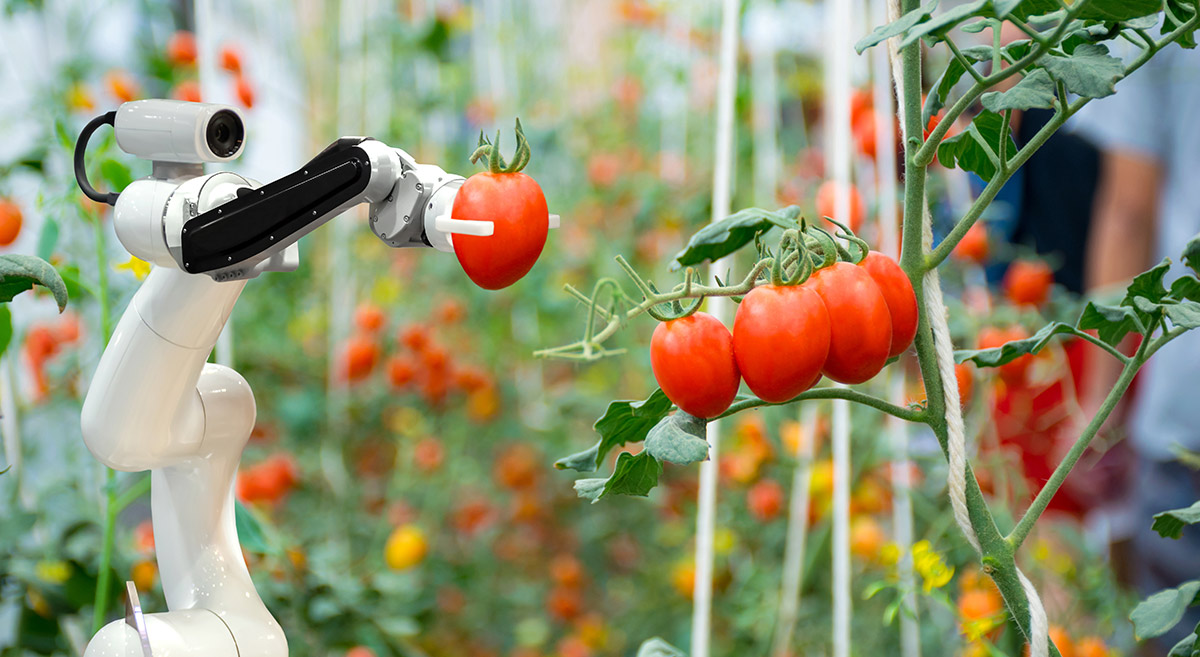Innovation will be key for Australian agriculture as ASX food stocks go cold

'Lean, mean, clean & green' - the latest technical analysis from savvy stock investors. Picture: Getty Images
Approaching the midway point of 2019, it’s been a quiet year so far for ASX food and agriculture stocks.
The analytics team at Stockhead ran the numbers on 34 small to mid-cap players in the industry, and found only 13 of them in positive territory.
The profile of the group is relatively diverse, with 22 different specialty areas from seed products to ginger producers, pies & pastries to potato farming.
For the eight companies with double-digit gains though, the representative number of sectors was dialled back to just four; infant formula, dairy, seafood and agri-tech.
| Code | Name | Specialty | Price ($) | YTD return |
|---|---|---|---|---|
| BUB | BUBS AUSTRALIA LTD | Infant formula | 1.32 | 187% |
| KTD | KEYTONE DAIRY CORP LTD | Dairy | 0.51 | 44% |
| AS1 | ANGEL SEAFOOD HOLDINGS LTD | Seafood | 0.19 | 31% |
| AHF | AUSTRALIAN DAIRY NUTRITIONAL | Dairy | 0.15 | 21% |
| OGA | OCEAN GROWN ABALONE LTD | Seafood | 0.16 | 14% |
| MGC | MG UNIT TRUST | Dairy | 0.32 | 12% |
| WNR | WINGARA AG LTD | Agtech | 0.28 | 12% |
| TGR | TASSAL GROUP LTD | Seafood | 4.80 | 11% |
| WOA | WIDE OPEN AGRICULTURE LTD | Agtech | 0.13 | 8% |
| TFL | TASFOODS LTD | Premium foods | 0.15 | 7% |
| MRG | MURRAY RIVER ORGANICS GROUP | Organic foods | 0.08 | 5% |
| SHV | SELECT HARVESTS LTD | Almond producer | 6.30 | 3% |
| FFI | F.F.I. HOLDINGS LTD | Pies & pastries | 4.00 | 2% |
| AAC | AUSTRALIAN AGRICULTURAL CO. | Beef livestock | 1.11 | 0% |
| RIC | RIDLEY CORP LTD | Animal nutrition | 1.29 | 0% |
| HUO | HUON AQUACULTURE GROUP LTD | Seafood | 4.53 | -3% |
| WBA | WEBSTER LTD | Walnuts & Livestock | 1.53 | -6% |
| DBF | DUXTON BROADACRE FARMS LTD | Grain farming | 1.39 | -7% |
| CSS | CLEAN SEAS SEAFOOD LTD | Seafood | 0.95 | -11% |
| DFM | DONGFANG MODERN AGRICULTURE | Fruit producer | 0.81 | -12% |
| ELD | ELDERS LTD | Agri conglomerate | 6.19 | -12% |
| BUG | BUDERIM GROUP LTD | Ginger producer | 0.20 | -17% |
| MCA | MURRAY COD AUSTRALIA LTD | Seafood | 0.16 | -18% |
| WHA | WATTLE HEALTH AUSTRALIA LTD | Infant formula | 0.73 | -18% |
| SFG | SEAFARMS GROUP LTD | Seafood | 0.09 | -19% |
| BFC | BESTON GLOBAL FOOD CO LTD | Dairy | 0.12 | -20% |
| AAP | AUSTRALIAN AGRICULTURAL PROJECT | Olives | 0.02 | -25% |
| WLD | WELLARD LTD | Livestock | 0.04 | -25% |
| FOD | FOOD REVOLUTION GROUP LTD | Health juices | 0.09 | -37% |
| LON | LONGTABLE GROUP LTD | Cheese production | 0.20 | -46% |
| JJF | JIAJIAFU MODERN AGRICULTURE | Potato farming | 0.05 | -65% |
| ABT | ABUNDANT PRODUCE LTD | Seed products | 0.07 | -68% |
| BAH | BOJUN AGRICULTURE HOLDINGS | Fruit products | 0.09 | -69% |
| FRM | FARM PRIDE FOODS LTD | Eggs | 0.21 | -73% |
Many investors would be familiar with the recent success of Bubs (ASX: BUB), which has almost tripled this year as it executes successfully on a tried and trusted path; exporting infant baby formula to China.
Second-best performer Keytone Dairy Corp (ASX: KTD) sits adjacent to Bubs as manufacturer of powdered dairy products (no infant formula though) and it too has an export strategy for China.
But while we’re on China, another well-worn talking point is the macroeconomic opportunity in livestock; for Australia to become the “food bowl” of Asia.
Australia now exports around 30,000 tonnes of beef a year to China, up from 2,000 tonnes in 2012.
However, so far this year that doesn’t appear to have translated into any recent momentum for Aussie livestock producers — at least in the listed space.
The 195 year-old beef producer Australian Agricultural Company (ASX: AAC) is flat for the year, while livestock exporter Wellard Ltd (ASX: WLD) has fallen by 25 per cent.
And on the larger end of the spectrum, agricultural conglomerate Elders (ASX: ELD) has lost momentum in 2019 after a successful turnaround strategy in recent years.
Shifting trends
The recent price action indicates that innovation — and the ability to quickly respond to new trends — will form an important part of the value proposition for Australian agricultural stocks.
On one hand, innovative solutions to offset climate risk will remain prevalent; research from Stockhead in March this year showed ASX small caps with direct exposure to climate change (with livestock producers ranking high on that list) had fallen by seven per cent over the previous six months.
But based on trends in global markets, investors will also be on the lookout for companies taking advantage of changing trends in consumer behaviour.
Are they ready to embrace the investment case for vegan food and other health themes? That looks to be some way off yet.
Stockhead’s 2019 list of agriculture stocks included just two companies dedicated to vegetable products; organic foods producer Murray River Organics Group (ASX: MRG) — up five per cent — and healthy juice manufacturer Food Revolution Group (ASX: FOD) — down 37 per cent.
But based on recent trends in global markets, there’s every chance that local investors stand ready to embrace emerging trends in clean agritech and vegan produce.
Last June, investment group Beyond Advisors established the US Vegan Climate Index — a selection of large-cap US stocks, screened for companies and sectors which fall short on metrics such as animal exploitation and carbon footprint. So far, it’s outperformed the broader S&P500.
And the recent IPO of Beyond Meat — the LA-based producer of plant-based meat products — has also turned plenty of heads.
Amid a recent IPO frenzy on US markets, shares in the Uber and Lyft ride-sharing platforms have both tanked from their initial offer price. Conversely, Beyond Meat surged from its May 2 listing price of $US25 and is currently trading above $US70.
Even fast-food chain McDonald’s, which has long said there’s no demand for a vegetable pattie in Australia, announced earlier this month it will trial a McVeggie burger in response to changing consumer tastes.
It remains to be seen how those trends translate to the listed investment space.
However, the broad thematics around dietary patterns and climate concerns has at least got some investors questioning where the next market opportunity may lie.
UNLOCK INSIGHTS
Discover the untold stories of emerging ASX stocks.
Daily news and expert analysis, it's free to subscribe.
By proceeding, you confirm you understand that we handle personal information in accordance with our Privacy Policy.








